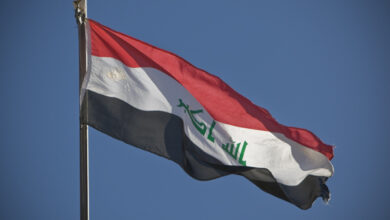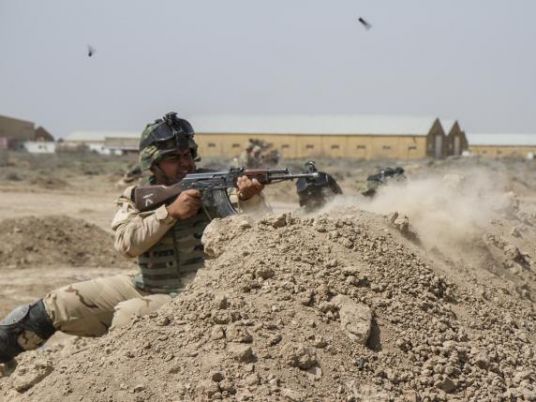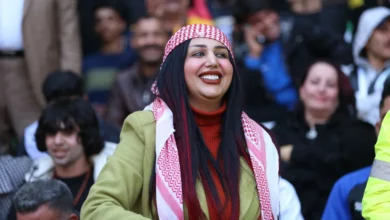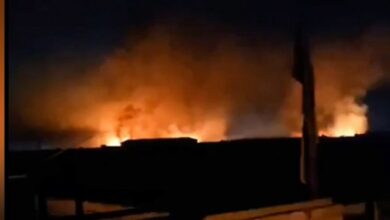Results from five provinces, the first to be posted by the electoral commission, were in line with expectations and did not include Baghdad and other hard-to-predict areas that could prove pivotal for the Shi’ite premier’s bid to remain in power.
They showed Maliki ahead in the largely Shi’ite south, while secularist rival Iraqiya, led by former prime minister Iyad Allawi, was polling well among Iraq’s Sunni minority.
Iraqiya, which has emerged as a major challenger to Maliki, listed a series of alleged violations, saying some of its votes had been removed from boxes, thrown in the garbage and replaced by other ballots.
"Insistence in manipulating these elections forces us to question whether the possibility of fraudulent results would make the final results worthless … We will not stand by with our arms crossed," an Iraqiya statement said.
Iraqiya said over 250,000 members of Iraq’s military were excluded from voting before election day because their names were not on voter rolls.
The largely Shi’ite Iraqi National Alliance (INA), which includes many former political partners of Maliki, issued a statement expressing "worry about signs of premeditated intentions to alter the results." It called for greater transparency from IHEC in calculating and posting results.
A clear victory by any of the blocs is unlikely and negotiations to form a coalition government could take months, leaving the possibility of a dangerous political vacuum as U.S. troops prepare to leave Iraq by the end of next year.
Results are anxiously awaited by foreign oil companies making plans to invest billions of dollars and vault Iraq into the top echelon of global producers, and by Washington.
But results from across Iraq’s 18 provinces were again delayed, four days after the parliamentary election Iraqis hope will bring stable government and help end years of sectarian conflict.
Iraq’s Independent High Electoral Commission (IHEC) said it will release remaining early results as they become available. Final results may take weeks.
"We are continuing with this procedure … until we’re finished," said Faraj al-Haidari, Iraq’s top electoral official.
MALIKI STRONG IN SOUTH
With about 30 percent of votes counted in Najaf and Babil, Shi’ite provinces south of Baghdad, Maliki’s State of Law bloc was ahead with about 124,700 votes, followed by 103,600 for the INA.
The Iraqiya list got almost 41,000 votes there. The picture was reversed in Diyala and Salahuddin, where Allawi’s list got more than 77,000 votes, compared to about 17,000 for Maliki’s bloc and almost 16,000 for the INA, the early results showed.
In northern Arbil province, seat of the largely autonomous Kurdistan region, early results showed an alliance of two powerful Kurdish parties far ahead of a reformist challenger.
With 28 percent of votes counted in Arbil, the two ruling parties — Iraqi President Jalal Talabani’s Patriotic Union of Kurdistan (PUK) and Kurdish President Masoud Barzani’s Kurdistan Democratic Party (KDP) — got more than four times the number of votes cast for the upstart Goran party.
The vote counts made public so far represented only a small fraction of about 12 million votes cast.
Sixty-two percent of Iraq’s nearly 19 million voters turned out at the polls on Sunday despite death threats from the al Qaeda-linked Islamic State of Iraq and a spate of election-day attacks by Sunni Islamist insurgents that killed 39 people.
Officials had not yet released a vote count for Baghdad, a major prize for the coalitions with about 8 million people.
Maliki’s State of Law, an alliance of his Dawa party and some Sunni tribal leaders, Shi’ite Kurds, Christians and independents, was the big winner in January 2009 local polls, running on a platform of security and strong central government.
Even if Maliki allies make up the biggest bloc in Iraq’s next parliament, they will have to unite with one or two other coalitions to form a government, and Maliki may face challenges from coalition partners opposed to giving him a second term.
Ad Melkert, the U.N. special representative to Iraq, lauded the vote count on Wednesday as an "honest process" and urged candidates and parties to accept the results.




